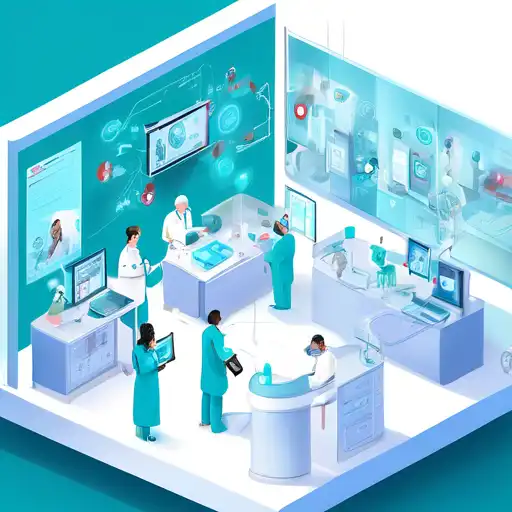The Revolutionary Role of IoT in Healthcare
The Internet of Things (IoT) is revolutionizing healthcare services by enabling smarter, more efficient, and personalized patient care. By connecting devices and systems, IoT is paving the way for advancements that were once considered futuristic. This article explores the transformative impact of IoT on healthcare services.
Enhanced Patient Monitoring
One of the most significant benefits of IoT in healthcare is the ability to monitor patients in real-time. Wearable devices can track vital signs such as heart rate, blood pressure, and oxygen levels, transmitting this data directly to healthcare providers. This continuous monitoring allows for timely interventions, potentially saving lives.
Improved Drug Management
IoT technologies are also improving drug management through smart pill bottles and dispensers. These devices remind patients to take their medication and alert healthcare providers if doses are missed. This not only enhances patient compliance but also reduces the risk of medication errors.
Streamlined Operations
IoT is streamlining healthcare operations by automating routine tasks. For example, smart inventory systems can track medical supplies in real-time, ensuring that critical items are always in stock. This reduces waste and improves the efficiency of healthcare services.
Personalized Patient Care
With IoT, healthcare providers can offer more personalized care. Data collected from IoT devices can be analyzed to tailor treatment plans to the individual needs of each patient. This personalized approach improves outcomes and enhances patient satisfaction.
Challenges and Considerations
Despite its benefits, the integration of IoT in healthcare comes with challenges. Issues such as data security and privacy must be addressed to protect sensitive patient information. Additionally, the cost of implementing IoT solutions can be a barrier for some healthcare providers.
The Future of IoT in Healthcare
The potential of IoT in healthcare is vast. As technology continues to evolve, we can expect even more innovative applications that will further improve healthcare services. From remote surgeries to AI-driven diagnostics, the future of healthcare is bright with IoT.
In conclusion, IoT is transforming healthcare services by enhancing patient monitoring, improving drug management, streamlining operations, and enabling personalized care. While challenges exist, the benefits of IoT in healthcare are undeniable. As we move forward, it is essential to address these challenges to fully realize the potential of IoT in improving healthcare services.
